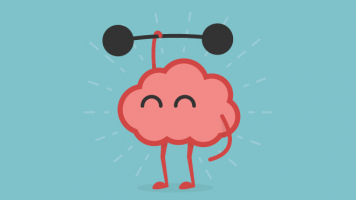Top 8 Best Ways to Increase Your IQ Levels
It's simple to think about IQ as a fixed characteristic: The exam shows your level of intelligence once you take it. However, that is not how things truly ... read more...function; intelligence is far more flexible than previously believed, and your brain is much more malleable than it is rigid. Neuroscientists are now clear that adults may change their IQ for the better or worse. Here are a few strategies to keep your IQ levels straight and upward!
-
Even though the brain gets plenty of exercises every day, some activities may improve connectivity and function. In turn, this could help to avoid age-related brain deterioration. Memory exercises can help with logic and language skills in addition to memory. In fact, researchers have used memory games to study the connections between memory, language, and object knowledge, or how well someone understands a physical object. Language and reasoning are also used to measure intelligence, therefore memory exercises can still enhance intelligence.
Exercises for improving memory include:
- Jigsaw puzzles
- Crossword puzzles
- Concentration card game, or card matching
- Sudoku
- ...

Memory activities 
Memory activities -
Time management, organization, planning, and self-control. These are only a few of the crucial executive functioning skills that people use on a daily basis to complete tasks and succeed. So the term "executive functioning skill" refers to the abilities in the brain that help people to accomplish daily tasks. Executive control is a part of executive function, which also includes executive management and regulation. According to research, one aspect of human intelligence called fluid reasoning is closely related to executive function.
Executive control activities include the following:
- Scrabble
- Pictionary
- Red light, green light
- Brainteasers
- ...

Executive control activities 
Executive control activities -
The mental processes associated with physical representations are a part of visuospatial reasoning. For instance, visual-spatial reasoning and processing are used while reading and interpreting a map. Researchers discovered in one study that improving visuospatial thinking raised IQ test results. In that study, participants visuospatial reasoning was improved in part by memory and executive control exercises. Another study discovered a link between young Chinese students' academic achievement in math and reading and their visuospatial reasoning skills.
Training for visual and spatial skills includes the following:
- Mazes
- Point-of-view activities
- 3-D models
- Unfolded prisms
- ...

Visuospatial reasoning activities 
Visuospatial reasoning activities -
Relational Frame Theory (RFT) refers to the evolution of human cognition and language through relational associations. According to relational frame theory, the ability to form reciprocal relationships between things is the foundation of human language and higher cognition. For instance, understanding that the phrases "dinner" and "supper" describe the same thing in two distinct ways. RFT as an intervention has been shown to dramatically raise children's IQ scores, according to 2016 research that supports previous results. Children's verbal and numerical thinking abilities also improved following the RFT intervention, according to the same research.
Relational training exercises include the following:
- Language learning books (“this is a…” and “that is a…”)
- Object comparisons (full cup versus empty cup)
- Amount comparisons (penny versus dime)
- ...

Relational skills 
Relational skills -
You don't have to become the next big name in music to get something from taking lessons. One research indicated that giving preschool-aged children just 75 minutes of music instruction each week for 12 weeks significantly increased their IQ scores.
A more recent 2021 study also revealed that teaching instrumental music to children aged 6-7 may improve some executive functioning. Even adults can gain from music training. According to a different study, the duration of musical practice in adults and executive functioning were positively correlated. So it's a good idea to choose the musical instrument you've always wanted to learn that might increase your IQ. However, there are benefits to just listening to music. According to a 2018 study, a musically-enriched environment could improve children’s verbal IQ scores.

Musical instruments 
Musical instruments -
As Dr. Seuss once wrote, "The more that you read, the more things you will know. The more that you learn, the more places you'll go". There is no doubting books' positive effects on brain development.
Beginning at a very young age, reading a good book gives a vast universe of information. Reading books for children, in particular, increases vocabulary exposure, which benefits children's reading test scores as well as their performance on general intelligence tests. In fact, when reading is included into parent-child interactions, the developmental benefits are much more obvious. In a recent study, researchers found that children whose parents read aloud to them had greater language and cognitive development skills.

Frequent reading 
Frequent reading -
It should not be surprising that learning multiple languages is good for the brain, and the earlier the better. However, whether or not the practice is beneficial for enhancing your IQ may depend on the age at which you start learning a new language.
According to a study from 2020, adults who participated in 11 weeks of language training did not see an increase in their IQ or IQ scores. A new study, however, looked at the link between IQ and language acquisition throughout early life. The findings showed that the best language acquisition for long-term cognitive outcomes happened between the ages of 18 and 24 months through talk and social interaction. Even though learning a new language may help people of any age become more significant performance, toddlerhood is the key time for influencing IQ scores.

New languages 
New languages -
The educational duration is positively correlated with intelligence testing results. It is possible to interpret this correlation in one of two ways: Students with a greater propensity for intelligence go on to complete more education, or a longer education increases intelligence.
Any form of education is essential for the growth of human intelligence. Over 600,000 participants were examined in a review of research on IQ and education to find out how education affected IQ scores. For every additional year of formal education, participants' IQs increased by one to five points, according to research. The most reliable, strong, and long-lasting strategy for increasing intelligence that has been discovered so far seems to be education.

Continued education 
Continued education





























